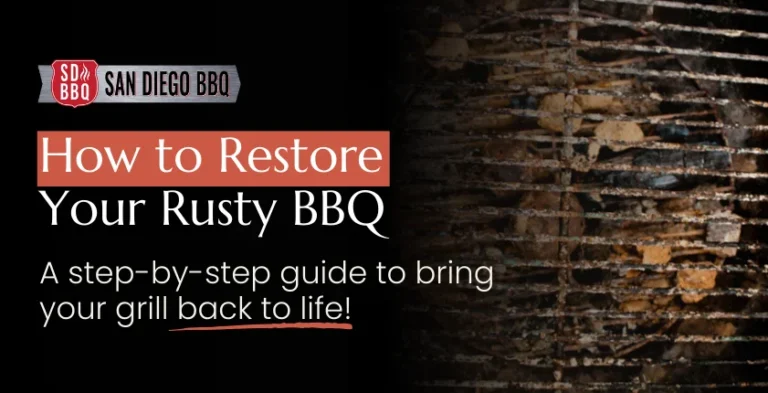Grilling is not just for the summer, especially in San Diego – folks grill all year, around here. The weather is grill-perfect and, let’s be honest; it’s a mouth-watering way to immerse a smoky, distinct flavor into steaks, chicken, and ribs.
With so much grilling, you’d think we’d all be grill masters by now. After all, man has been barbecuing for more than 1.9 million years. Let’s fast forward to 2018, a time when we have the collective experience of billions of people over 2 million years. So, what have we learned over this time?
Notice how I’ve been using the term ‘grilling’ and not ‘barbecuing’? The two terms are often used interchangeably, but there’s a very distinct difference – grilling is the technique of preparing smaller, high-quality pieces of meat rapidly over extreme, dry heat, whereas barbecuing is cooking larger cuts slowly, over indirect heat for longer periods.
That’s tip number one – here are 878979 more tips to move you from savage to grilling like the winningest man in BBQ, Myron Mixon.
We couldn’t start the list without first mentioning safe handling. There are as many as 600 million foodborne illnesses annually. If we do a quick calculation, that equates to roughly one in 10 people suffer from food every year. Now, don’t live in the stone-age anymore, so this is no longer as serious as it once was but there are still more than 420,000 deaths/year, worldwide! So here’s how to avoid a very uncomfortable long weekend:
- It seems like a no-brainer to keep your uncooked meat away from other ingredients to ensure there’s no contamination.
- Thoroughly wash your hands, cutting boards and utensils with soap after preparation.
- Never allow raw meat to sit out for more than two hours. It’s a myth that you should let your beautifully marbled steak rest at room temperature before setting it on the grill.
- Basically, always use the fridge when marinating and, again this seems primitive but, never put your cooked food back onto the dish that it was marinated on!
About marinades – they are the essence of flavor and taste – they can even make your meat more tender. Generally, combinations with acids; like fruit juices or vinegar need a much lesser amount of time to marinate. About 2 hours is enough to fully marinate steak, chicken or pork chops but, as mentioned above, always set your marinating meat into the fridge if you’re planning to let it infuse for more than 30 minutes.
Our next tip touches on some terminology again – direct vs. indirect heat. Cavemen were most concerned with thoroughly cooking their food, at high heat, to avoid any foodborne illness. We, on the other hand, want to enjoy our food as much as we can while remaining safe. The trick is both indirect and direct heat. Sear thicker meats over high, direct heat to enclose its flavorful liquids and to make a lovely, caramelized and smoky crust. Afterward, switch to the indirect cooking method of slower and lower temperature cooking to guarantee the correct internal temperature.
This tip is so ancient that even our primordial cousins mastered it from the get-go. Control flare-ups or lose your eyebrows. Flare-ups are triggered when the melted fat from your meat drips onto your fire. One great proactive technique is to trim away all surplus fat and leave about a quarter inch – you can also limit how much oil goes into your marinade.
Alas, no matter how prudent you may be, a flare-up will occur at some point in your grilling adventures. When it occurs, swiftly move your food out of the direct heat and cover the grill to diminish oxygen to the flames, temporarily.
We have one tip left and, although it’s arguably the most modern of the bunch, we believe it’s also the key to the best BBQ meal. Simply put, grill your veggies. The juices from your vegetables will caramelize and sweeten more than any other cooking method – the heat will also immerse them with an even more profound and rich flavor than you can imagine.







